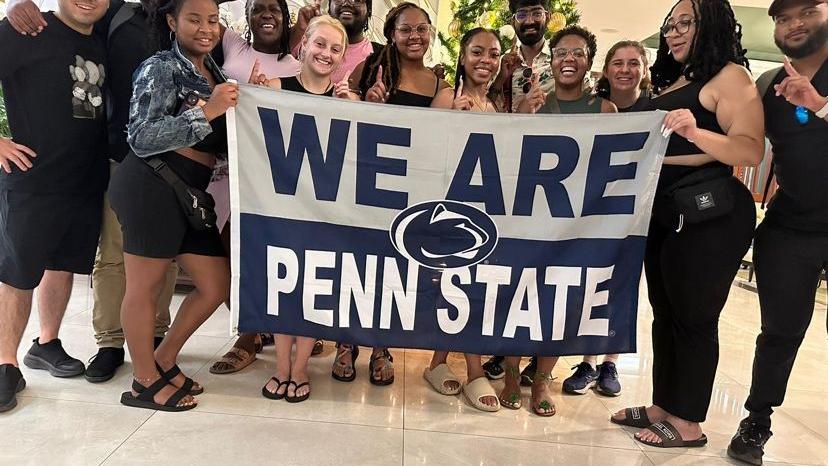The social media analytics and inclusive leisure class led by Hemmings-Jarrett delved into the complexity of creating social media content tailored to demographics beyond one’s own. The course emphasized search engine optimization concepts crucial for social media managers and content creators, ensuring content searchability while instilling a subtle marketing approach. Students were tasked with crafting content that was not only accessible and inclusive but also accurately targeted their chosen audiences or represented them in suitable ways.
For the first EDGE project, students were tasked with creating text content using artificial intelligence (AI) tools like ChatGPT, working alongside The University of the West Indies globalization and policy students to ensure ethical and legal standards were met. At this time, the U.S. students had not traveled to the locations they were tasked with creating content for. So, Hemmings-Jarrett said, it was important for students to utilize the West Indies collaboration to ensure the content was appropriately representing these locations and the culture.
“It’s not only about what our students can get but also what they can give,” Hemmings-Jarrett said. “Immersive technologies like virtual reality allow communities of people globally to meet virtually, and walk, explore and create together.”
The second EDGE project focused on creating 360-degree, immersive video content of the locations visited throughout the trip to be used in virtual reality (VR). Before traveling, Penn State Abington students were trained by the Teaching and Learning with Technology (TLT) faculty on how to use the cameras required to capture this form of content, as well as the immersive platform ThingLink for the creation of VR tours.
A notable aspect of this EDGE project was its adaptation for students who could not physically travel to Jamaica. Among the 14 students involved, four were unable to participate in the embedded experience. To bridge this gap, VR tours of Jamaica were created specifically for them during the trip, marking the first time VR technology was integrated into the EDGE program.
For Hemmings-Jarrett, the most rewarding aspect of this work with the EDGE program was encompassed in the entirety of the experience. Introducing students to a diverse international perspective, especially in a Black-majority country, was immensely fulfilling, she said. Being the first to lead students from Penn State Abington to the Caribbean community (CARICOM) held significant meaning as Hemmings-Jarrett calls herself “fiercely Caribbean” and is proud and passionate about her Caribbean identity.
“International academic partnerships must be truly inclusive, amplifying voices too often marginalized,” Hemmings-Jarrett said. “We live in a globalized community so why not bring that into our classroom experiences too?”

